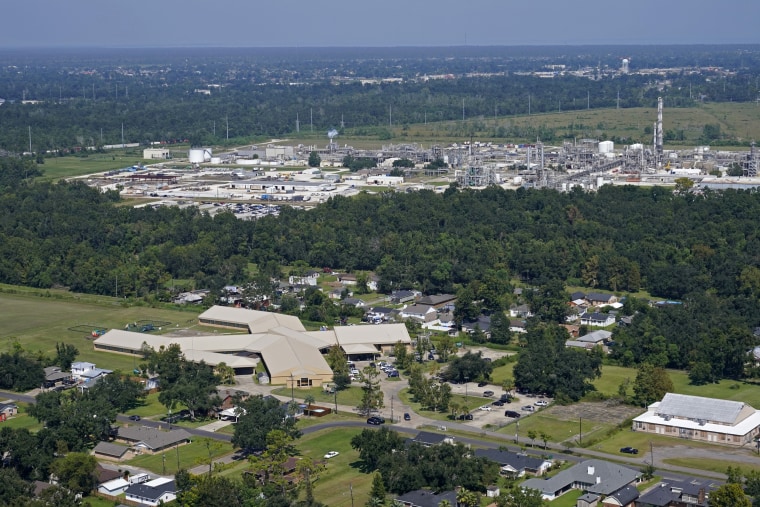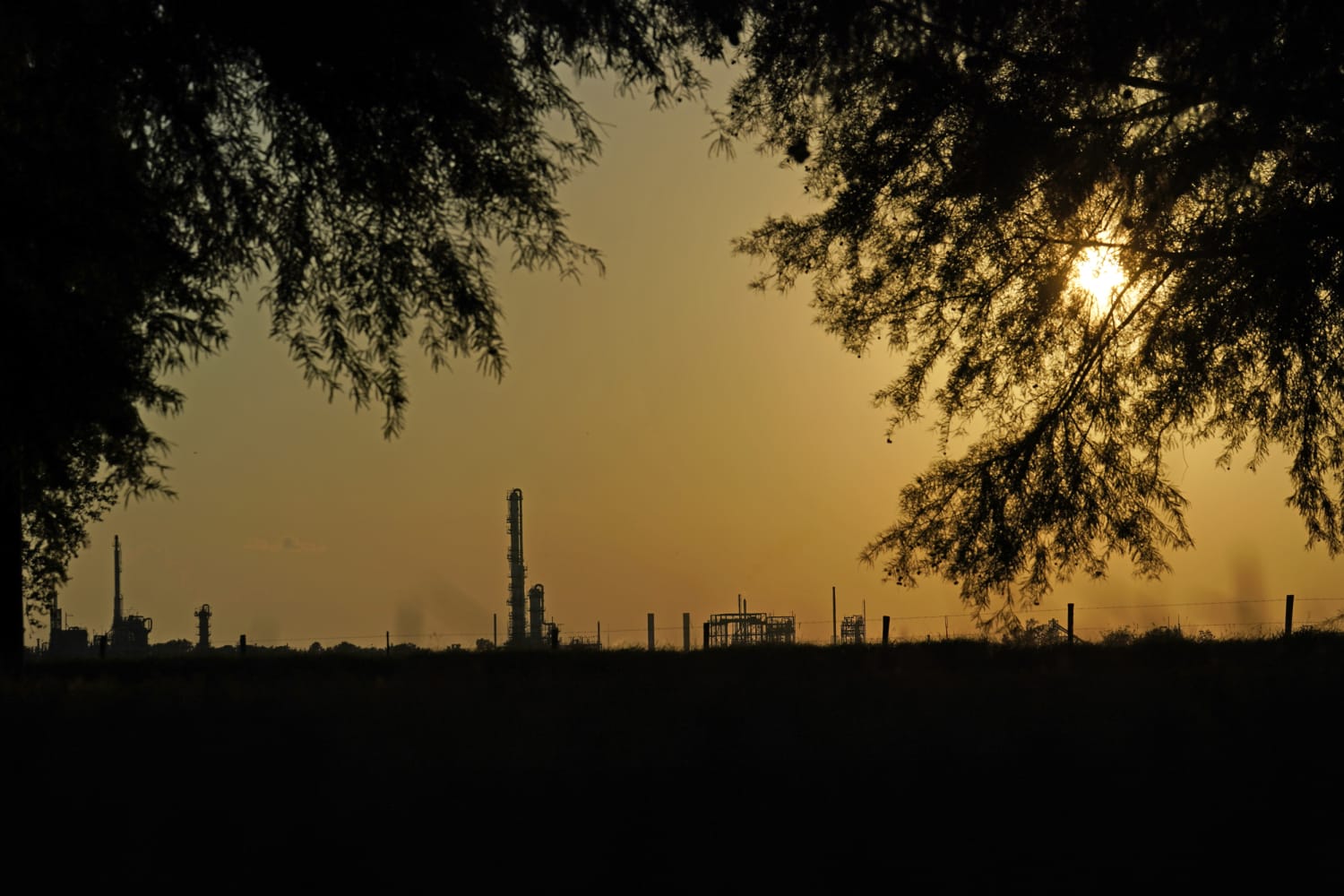The Department of Justice is seeking to compel a controversial manufacturing plant to curb its emissions in a region where the estimated cancer risk is among the highest in the United States.
The action raises the stakes in a longstanding conflict between the Louisiana plant, nearby residents and the Environmental Protection Agency.
The Denka Performance Elastomer plant in LaPlace, Louisiana, along the Mississippi River, is the only facility in the U.S. that produces chloroprene, a chemical used in the production of neoprene. Neoprene is a synthetic rubber found in products such as wetsuits and adhesives.
The EPA identified chloroprene as a likely human carcinogen in 2010. Denka says it has reduced emissions by about 85% since it took over the plant in 2015, but the estimated pollution-related cancer risk in the area is still one of the highest in the country, according to the EPA.
Now, the DOJ has filed a complaint to compel Denka to further reduce its hazardous emissions. Tuesday’s complaint, first reported by NBC News, was filed in the U.S. District Court for the Eastern District of Louisiana on behalf of the EPA under the Clean Air Act.
A spokesman for Denka did not immediately respond to a request for comment.
Denka’s facility is located along a stretch of the Mississippi River that activists and residents have nicknamed “Cancer Alley” because of the unusually high cancer risk among communities there and the emissions that come from the numerous plants in the area.

Over the years, Denka has committed to taking steps to reduce its plant’s emissions. In 2017, the company voluntarily agreed to spend more than $17 million to install new emission reduction technologies.
But on-site inspections by the EPA in April and May 2022 found Denka was not meeting regulatory requirements for the storage and disposal of chloroprene waste, which contributes to emissions of chloroprene from the plant.
Even when Denka’s facility was shut down for a month in September 2021 after Hurricane Ida, a small monitoring demonstration test conducted by the Louisiana State University School of Public Health revealed detectable levels of chloroprene in two out of 10 air samples, according to the researchers.
That 2021 test, which was not a formal study, found levels approximately four times above the EPA’s recommended maximum annual average chloroprene air concentration. The samples were taken at or across the street from a nearby elementary school.
LaPlace is located in the majority-Black St. John the Baptist Parish, about 30 miles outside of New Orleans. The plant is one of many that activists argue puts undue health risks on Black communities in the area.
The EPA’s Office of Environmental Justice and External Civil Rights in part blames state agencies; In an October letter, it wrote that the Louisiana Department of Environmental Quality and the Louisiana Department of Health’s failure to pursue stronger action against Denka disproportionately exposed Black residents to harmful air pollutants.
The EPA said it found during an investigation that state agencies failed to provide residents with information about the cancer risks associated with chloroprene levels in the area, among other problems.
In a statement on Tuesday, EPA Administrator Michael Regan said the Justice Department’s move followed his pledge to take strong action for communities living near the plant.
“The company has not moved far enough or fast enough to reduce emissions or ensure the safety of the surrounding community,” said Regan, who has been vocal about his commitment to environmental justice. “This action is not the first step we have taken to reduce risks to the people living in Saint John the Baptist Parish, and it will not be the last.”
Denka’s facility, owned by a Japanese company by the same name, was previously a DuPont petrochemical plant. DuPont still owns the land beneath Denka’s facility so is also named in the DOJ complaint.
Source: | This article originally belongs to Nbcnews.com











